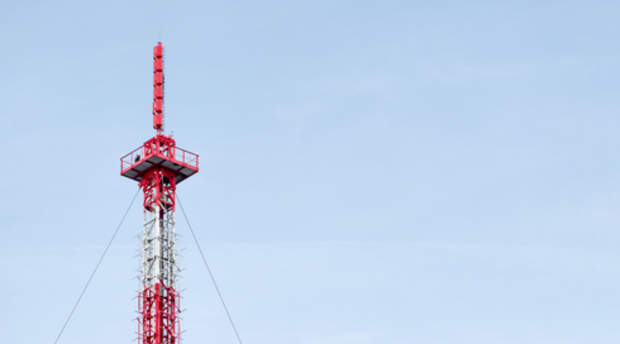Kathrein and Rohde & Schwarz partner to advance world’s first 5G Test Field for TV Transmission

Project partners Kathrein and Rohde & Schwarz have reached two important milestones of the 5G TODAY research project: Kathrein completed an innovative antenna for test operation at BR’s transmitter site in Ismaning near Munich. In addition, a Rohde & Schwarz transmitter successfully went into operation at Bayerischer Rundfunk’s (BR) Wendelstein transmitter station. The specially developed Kathrein antenna and the high-power transmitter are part of the LTE Broadcast test transmission.The 5G TODAY project is funded by the Bavarian Research Foundation and led by the Institute for Broadcasting Technology, IRT. Further project partners are Bayerischer Rundfunk (BR) and Telefónica Germany.
Project partners Kathrein and Rohde & Schwarz have reached two important milestones of the 5G TODAY research project: Kathrein completed an innovative antenna for test operation at BR’s transmitter site in Ismaning near Munich. In addition, a Rohde & Schwarz transmitter successfully went into operation at Bayerischer Rundfunk’s (BR) Wendelstein transmitter station. The specially developed Kathrein antenna and the high-power transmitter are part of the LTE Broadcast test transmission.The 5G TODAY project is funded by the Bavarian Research Foundation and led by the Institute for Broadcasting Technology, IRT. Further project partners are Bayerischer Rundfunk (BR) and Telefónica Germany.
The new 5G network standard is a key technology for the future when vehicles become highly automated and devices are networked with each other in the Internet of Things. 5G also offers great potential for efficient distribution of media content. The introduction of 5G will open up a worldwide market with millions of smartphones and tablets acting as potential TV receivers able to combine live TV services, media libraries, social networks and many other media services.
LTE Broadcast, also known as FeMBMS (Further evolved Multimedia Broadcast Multicast Service), was specified in 3GPP Release 14 in June 2017. It defines new options for broadcasting to LTE-enabled mobile user equipment such as smartphones and tablets. For the first time, the upgraded standard allows high-power high-tower (HPHT) applications in downlink only mode while utilising the full signal bandwidth for multicast/broadcast applications. Moreover, 3GPP Release 14 defines an extended cyclic prefix (guard interval) and modes to enable operation without SIM cards, which is necessary for broadcast applications.
The transmitters in Ismaning and on the Wendelstein form a Single Frequency Network (SFN), which is to enable mobile and portable reception in the greater Munich area as well as on the main traffic routes between Munich and Salzburg. Communication technology specialist Kathrein developed a special antenna for the transmission of diversity signals for the transmitter station in Ismaning. Twelve innovative UHF antenna fields were installed at a height of 200 meters. The project also included the installation of a 370-metre long, arm-thick HF transmission cable. Another Rohde & Schwarz high-power transmitter with 7 kW output power for 100 kW ERP is to be connected to the antenna at the end of January. The test broadcasting network will then be prepared for the measurements.
Currently, a major European 5G field trial is being established in Germany as part of the Bavarian research project ‘5G TODAY’. The project is funded by the Bavarian Research Foundation. Under the leadership of the Institute for Broadcast Technology (IRT), project partners Kathrein and Rohde & Schwarz are investigating large-scale TV broadcasts in the FeMBMS mode over 5G Broadcast networks. The project is supported by Telefónica Germany and Bayerischer Rundfunk, the Bavarian state broadcaster, who is providing two HPHT sites near Munich for this groundbreaking field trial.
